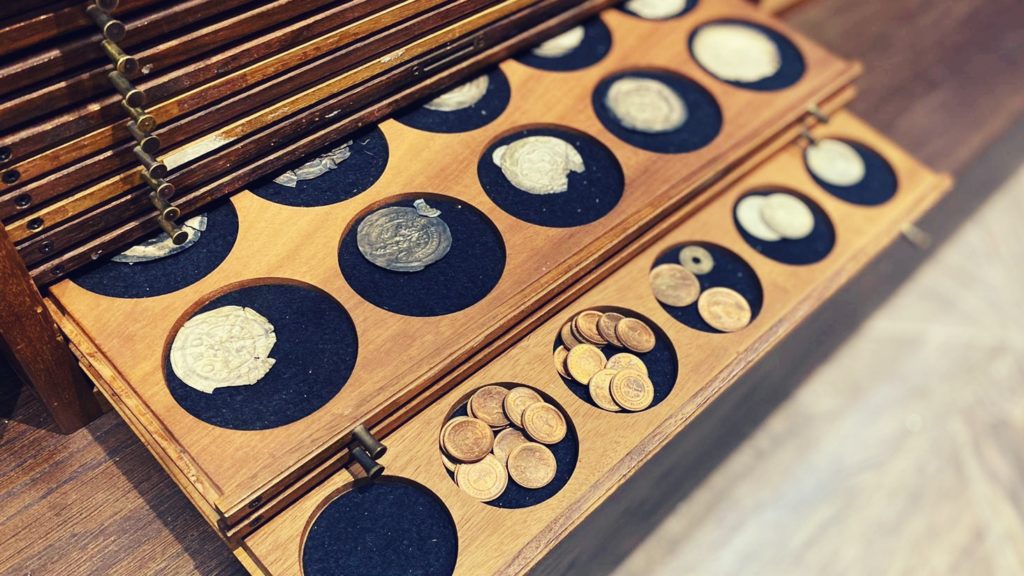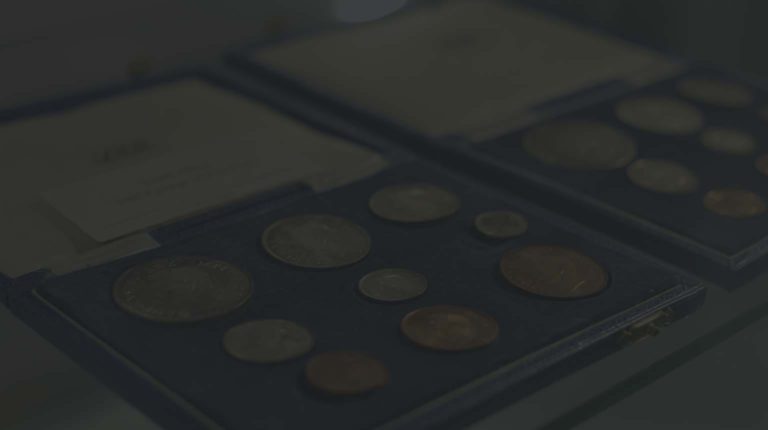
Whether we’re in our store with customers or out at coin fairs, we are always asked “What’s the best way to store rare coins?”. Some say in zip lock bags, some opt for albums or folders, whilst others are looking for a storage solution that has the power to beautifully display their collection. But what really is the best way to let your collection shine?
We’ve previously put questions to our teams for their expert opinions, like should you slab your coins, or if it’s best to use gloves when handling coins, so we decided to go to them once again for their take on the best way to store your coins…
“There are a couple of ways. If you intend to simply store the coin away in a safe/safety deposit box, I would recommend an acid-free paper envelope, and in a box, ideally with other coins of the same metal, also in paper envelopes. If you intend to look at your coins frequently, a high quality mahogany cabinet will suffice. The coin would be stored in a tray within the cabinet. I’d also recommend the cabinet be small enough to be stored in a safe, and its contents fully insured. These should also be stored in a low-humidity environment at a consistent room temperature.”
DOMINIC CHORNEY, ANCIENT COIN SPECIALIST
“The safest way, now recognised as technically best practice by museums but not aesthetically pleasing, is on plastazote pads in metal trays, replacing the old mahogany or rosewood cabinets with felt linings. This is not everyone’s choice.”
JEREMY CHEEK, NUMISMATIC CONSULTANT
“The chemicals in the plastic cause the coins to “sweat”, they develop a damp greasy residue, that eventually will cause silver coins to develop a green film over the surface” – Neil Paisley
“A rare coin, or any coin really, is best stored in a velvet or flocked tray, within a coin cabinet. Try avoiding storing your coins in plastic pockets or paper envelopes that are not acid-free.”
EMA SIKIC, BALDWINS SALES EXECUTIVE
“The best way to store rare coins long term would be in paper envelopes. The common pvc envelopes are convenient but should only be used short term, the chemicals in the plastic cause the coins to “sweat”, they develop a damp greasy residue, that eventually will cause silver coins to develop a green film over the surface, copper coins will lose their lustre and verdigris will eventually ensue. A decent coin cabinet and also lindner trays are acceptable but when pulling the trays out it must be done slowly or the coin will keep moving and will eventually lead to cabinet friction. Proof coins whether in a tray or envelope should always be wrapped in a little cellophane packet in order to protect the proof fields.”
NEIL PAISLEY, MANAGING DIRECTOR
“Either in a non-acidic paper flip, in a coin cabinet or in a recognised holder via an accredited dealer, several reputable companies offer storage solutions.”
CHRIS TYRIMOS – BRITISH NUMISMATIST
So to conclude, there are many options on how to store your coins, and it can all be a personal preference depending on the size and type of collection you own. The main important takeaway is how not to store your coins. Avoid common envelopes for long term use, be wary of the temperature in the room and ensure that you always use acid-free materials.
How do you store your coins? Vote in our poll by clicking the button below or tell us on social!


